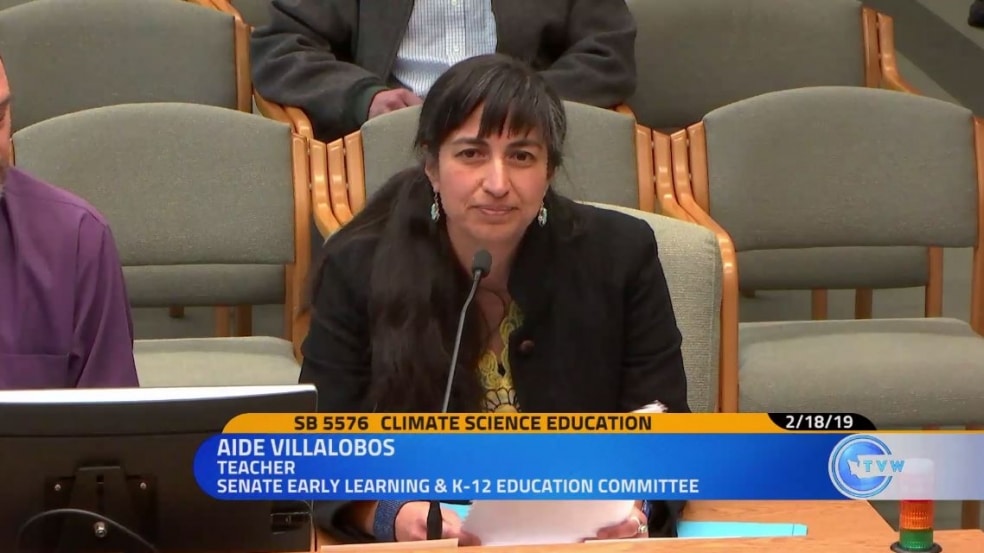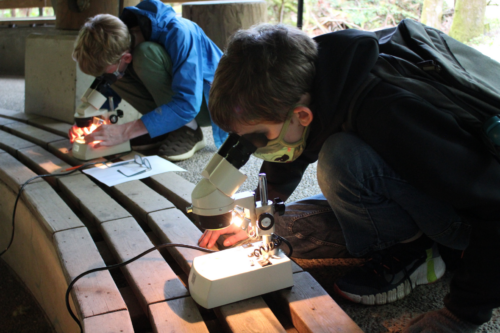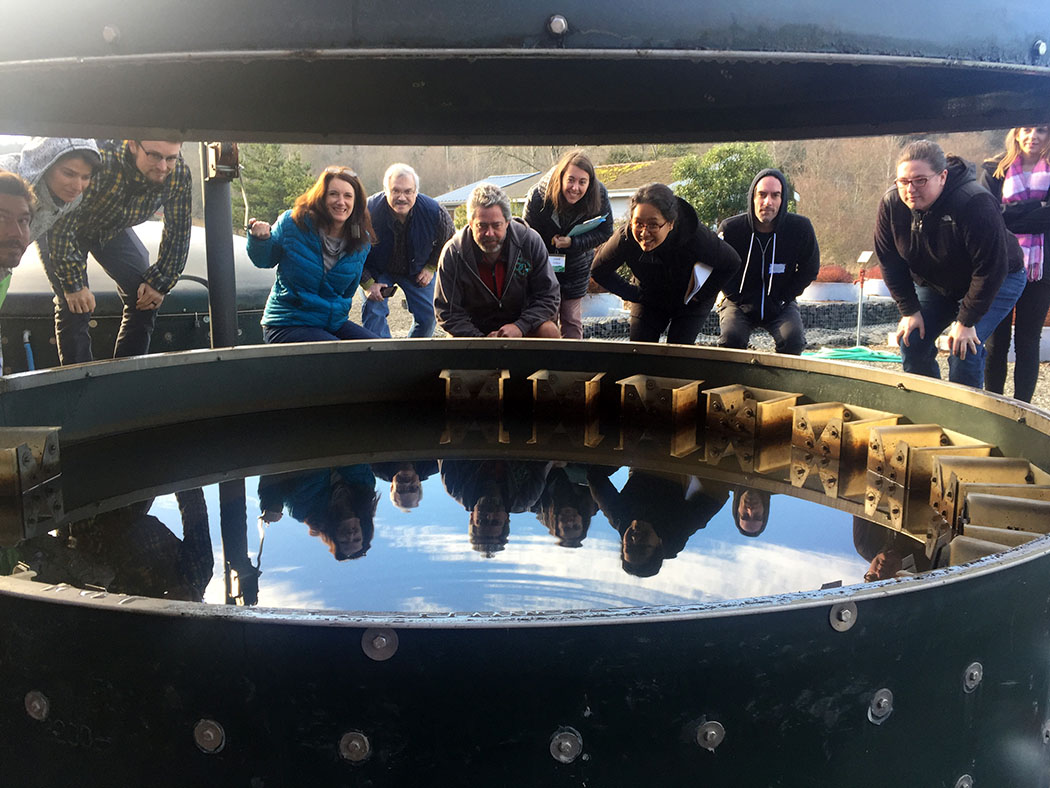Our work with teachers is critical in broadening our reach in the region.
Author: Maggie Rich
In 2018, the Washington state legislature provided $4 million dollars for the Office of Superintendent of Public Instruction, Education Service Districts (ESDs) and Community Based Organizations to fund teacher training in environmental and climate science instruction. This innovative funding connects teachers to training that supports the Next Generation Science Standards through instruction rooted in local environmental issues, like IslandWood’s NGSS in Action workshop series. This year, the Washington state legislature has the opportunity to pass a bill that renews this funding so that programs like these can continue.
On February 18th, Aidé Villalobos—2nd grade science teacher in Shelton, WA—testified in front of the Washington state Senate’s Early Learning and K-12 Education Committee in support of this funding. Read her powerful testimony below, and check out the full recording here.
“I am a first-generation immigrant from Mexico who was raised in California by immigrant parents. I’ve been teaching a total 18 years and all 18 years have been in Title 1 schools and in bilingual programs with English learners. In those 18 years, I can count the number of times on one hand that my building or district has trained me in science. I am a common example of the type of teacher who is least likely to receive any training on science, much less climate science. The students I work with, are a common example of the least likely to learn about science, much less climate science. Yet, they are the demographics that are most likely to be impacted by the effects of climate change and they represent the perspectives and participation most needed.
Thanks in part to the money that funded the climate science proviso this year, I attended professional development from Island Wood and ESD 113 and I am now an anomaly in the world of elementary education—I better understand and have the skills to teach the Next Generation Science Standards and Climate Science. My current students are extremely lucky in this respect. I’m an anomaly but I should be the norm. I am here to emphasize that all teachers, but especially those who work with the students that are traditionally underrepresented or underserved in the sciences—such as Black, Hispanic, Native American, and those in rural communities—should have the resources to attend high quality professional development to prepare and enable them to teach high quality lessons in science, the environment and climate science. If we want our youth to lead in taking care of our planet—our home—then we need to start by enabling our teachers to give our youth the skills to respectfully and rationally communicate and interact with each other about issues that are complex. Thank you.”










